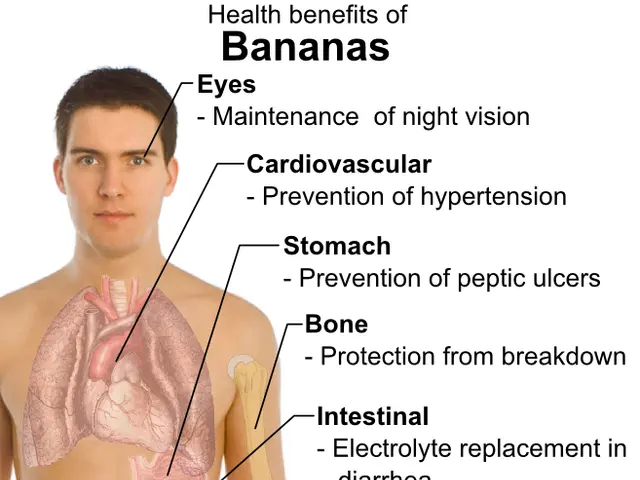Certain meals should be avoided during breakfast due to their potential inflammatory impacts:
Ditching White Bread for Better Health
Got a bread craving? You might want to think twice before reaching for the loaf of white bread. That's according to Frank Hu, an epidemiologist and professor of medicine at Harvard University, who suspects that the ubiquitous baked good is a dietary devil due to its inflammatory effects.
Inflammation, our body's natural response to infections, injuries, or aggressions, can wreak havoc on our health when it persists over time. Chronic inflammation has beenlinked to a slew of nasty health conditions, including type 2 diabetes, certain types of cancer, cardiovascular diseases, neurodegenerative disorders, and autoimmune diseases.
So how does white bread fit into this picture? Well, it's all about that refined white flour. You see, during processing, the bran and germ of the grain are removed, leaving mainly starch. This high carb content triggers a spike in blood sugar levels, sparking an inflammatory response. The low fiber content doesn't help either, as it leaves us feeling less full and can mess with our gut's microbiota.
To keep inflammation in check, Hu recommends ditching white bread and opting for the Mediterranean diet instead. Full of fresh fruits, veggies, nuts, seeds, whole grains, fish, olive oil, and a moderate amount of dairy and wine, this eating pattern has been shown to offer some serious anti-inflammatory benefits. It's all about balancing smart choices, though—so don't forget to limit ultra-processed foods, added sugars, red meats, and sugary drinks.
But diet isn't the only factor that plays a role in inflammation. Regular exercise, restful sleep, stress management, and maintaining a healthy body weight are all key players too. By addressing these lifestyle factors hand in hand, we can create a game plan for reducing our risk of chronic diseases.
Now, let's set the record straight: Frank Hu isn't saying you can never have white bread again. Instead, he's advocating for a more balanced approach to nutrition—one that takes into account current scientific research. So go ahead and indulge every once in a while, but make certain to prioritize whole grains, fiber, and gut-healthy foods most of the time. Your body will thank you.
By Elim Johana Alonso Dorado - El Tiempo (Colombia) - Healthy Eating
Extra Insights:
- According to scientific consensus, consuming refined grains like white bread leads to increased chronic inflammation due to their lack of fiber, phytochemicals, and other nutrients.
- White bread's high carb content triggers spikes in blood sugar, leading to inflammation-promoting metabolic pathways and oxidative stress.
- Consuming white bread can also negatively affect gut health, leading to an imbalance in beneficial gut bacteria and an increase in harmful bacteria, contributing to chronic inflammation.
- Persistent inflammation, linked to health conditions such as type 2 diabetes, chronic diseases, and certain types of cancer, can be triggered by refined foods like white bread due to their high carb content and low fiber.
- An informed approach to nutrition, advocated by Professor Hu, includes favoring diets rich in whole grains, fiber, and gut-healthy foods like those in the Mediterranean diet over refined grains like white bread.
- The Mediterranean diet, which includes fresh produce, nuts, seeds, whole grains, and lean proteins, may offer anti-inflammatory benefits and help reduce the risk of chronic diseases.
- Beyond diet, maintaining a healthy lifestyle by exercising regularly, getting adequate sleep, managing stress, and maintaining a healthy body weight can help mitigate inflammation and promote overall health and wellness.








